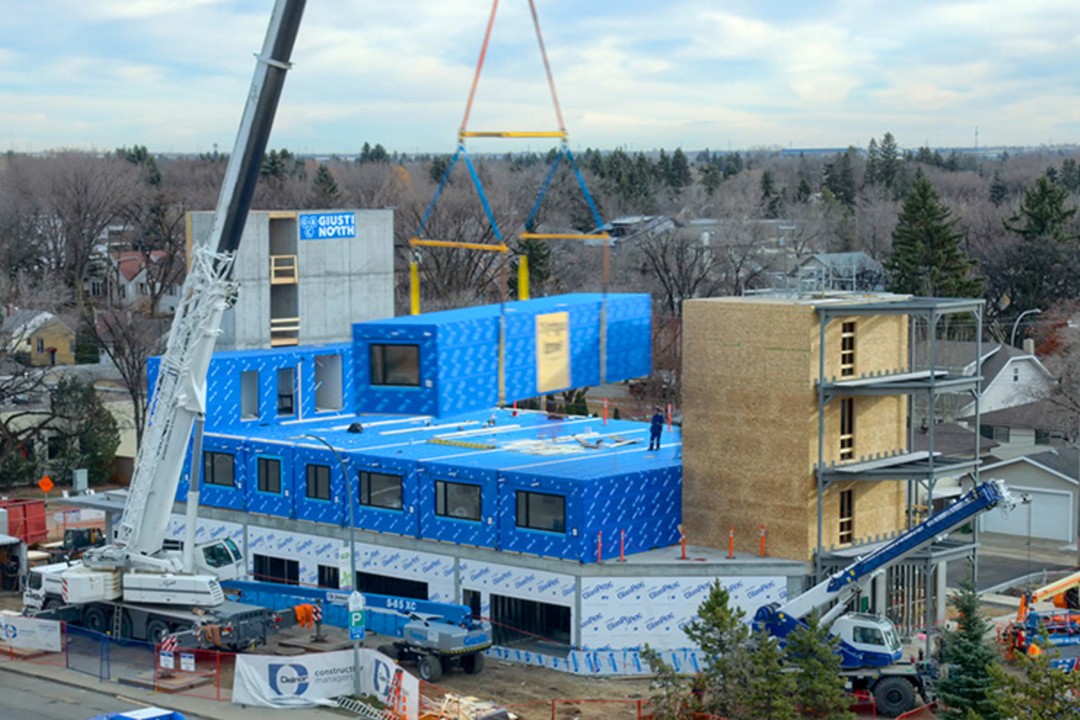The provincial government's move to "take out the middleman" from its funding of organizations that serve those experiencing homelessness could disrupt the sector's ability to respond nimbly to people in need, according to the head of an organization that currently disperses those funds.
In December, the province announced it will start to send money directly to service providers in the province's cities instead of through organizations like Homeward Trust. That non-profit organization has, until now, stewarded millions of dollars from the province to agencies that serve those experiencing homelessness. The transition is expected to be complete by October.
Susan McGee, CEO of Homeward Trust, told Taproot that Edmonton's social service ecosystem has developed a model where resources are aligned and distributed across many entities and priorities, an approach that has value. "We're not just a funder," McGee said.
McGee said she worries the province's move will stymie the social service ecosystem's ability to respond quickly to vulnerable people who require immediate assistance. Provincial governments have come and gone and homeless-serving organizations have evolved, but through it all Homeward Trust has built an infrastructure with community partners and workers that allows for an agile response when a vulnerable person needs help, McGee said. Plus, when there's a central body stewarding funds, it's like other emergency situations where different groups collaborate to address issues, she said.
"Suddenly a whole bunch of other things get set aside, and (organizations) just solve the problem," McGee said.
In December, Minister of Seniors, Community, and Social Services Jason Nixon said at a press conference that the current system of funneling funds through organizations in cities no longer works because homelessness is increasing in rural communities across the province. The new system will cut red tape and allow funding to go to organizations that fit with the province's mandate, he said. "We've seen evidence in the past of organizations distributing tents out into the community," Nixon said. "That would be a great example of where our government is focused on shelter and housing, not on providing encampments."
The province said the model change would not cut funding to front-line agencies.
On March 31, city council's community and public services committee asked administration to analyze what would happen to vulnerable people if the city started to cut its own funding to the social services that, it says, are the province's responsibility. The request followed the committee commissioning a report to detail the services the city funds to address homelessness, mental health, and addictions, which council says are all under provincial jurisdiction. Previously, council asked administration to come up with a "transition strategy" in which the city transfers ownership of these tasks to the province. The strategy report said the city spent about $34.7 million on such tasks in 2024.
Homeward Trust's role in the ecosystem will be somewhat up in the air once the provincial transition is finished in October. The province told Taproot in an emailed statement that Homeward Trust will still receive funding for their frontline services and to maintain coordination services. McGee said the organization is evaluating its programs and contracts to ensure the province understands its funding needs. "When we unpack all of that, it's kind of like a decoupling, untangling, and then reconstructing based on where the government values the role that we play … all of that is on a program level," she said.

The Hope Terrace housing complex in King Edward Park. After construction, ownership was transferred to Homeward Trust. (City of Edmonton)
On top of dispersing funds, Homeward Trust runs rental assistance programs, helps maintain positive relationships with landlords of those in housing support programs, and covers start-up costs of moving into a new home. It also furnishes about 100 homes each month through its social enterprise, Find, and reports on the state of homelessness in Edmonton with the by name list.
The number of people experiencing homelessness has increased by nearly 2,000 over the last year. As of March 20, there are nearly 5,100 people experiencing homelessness in Edmonton, according to the by name list. About 1,250 people are living outside, 800 are staying in shelters, and 3,000 are in insecure, short-term housing.
McGee said Homeward Trust is still housing about 140 people each month, but it's becoming more complex to help vulnerable people. She said the increase in people experiencing homelessness is "actually happening in spite of the fact that the work is good, not because it isn't good … We've just been reviewing cases and referrals and caseloads and what we would have looked at 10 years ago in terms of the number of people that we are able to support, and currently (there is) much more time and direct involvement folks need in order to maintain their housing," she said.
